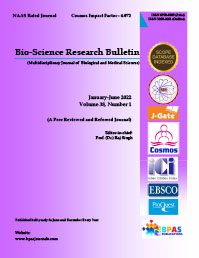Practical Effectiveness of Yoga
DOI:
https://doi.org/10.48165/Keywords:
Spiritual, Physical, Mental, Individual, Social, Divine, BenefitAbstract
It is true that Yoga is ancient. In fact, its origin is shrouded in antiquity. No one really knows when Yoga was first developed or who gave it to man. There are many historical conjectures which even suggests that the Gods themselves taught Yoga to man. The fact is that yogic practices were known even in the Vedic times, lndian Rishis of ancient times, recognised the unalterable fact of life , namely that man is not a mere body, not a mere mind, but a body mind complex in which one reacts on the other end in which one cannot be separated from each other. No modern educationist and thinkers could possibly disagree with such a comprehensive view of man. Yoga is the physical, mental and spiritual practice, which originated in ancient India with a view to attain a state of permanent peace. The term Yoga is derived from either of the two roots, yujr yoga (to yoke) or Yujsamadhau (to concentrate). The yoga sutras of Patanjali define Yoga as “the stilling of the changing states of mind“. Yoga has also been popularly defined as “union with the divine“. Yoga even emphasizes that mind influences the body more than the body influences the mind. In the present paper, we have discussed about several benefits of Yoga which can be highly used as a source of development for individual as well as social well being.
References
Bimali, D.N. and Joshi, K.L. (2005). Vamana Purana, Paremal Pulications, Delhi, 1st Edition. 2. Brena, S.F. (1972). Yoga and medicine, Julian Press Inc. New York.
Chaged, B. (2008). Stress Management Guide, Fujan Books, New Delhi.
Vivekanand, S. (1893). Addresses at the Parliament of Religion in the USA.
